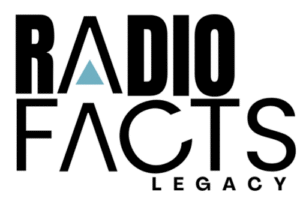
BROADCASTERS SUPPORT ANTICIPATED GOVERNMENT CONCLUSIONS IN ANTITRUST REVIEW OF ASCAPAND BMI CONSENT DECREES
WASHINGTON – Representatives of local radio and television broadcasters expressed support for the Department of Justice’s (DOJ) proposed conclusions in its multi-year review of antitrust consent decrees regulating two of the nation’s largest music performing rights organizations in comments filed last week.
The review concluded that no modifications were warranted to the decrees affecting the songwriter royalties collected by American Society of Composers, Authors and Publirs (ASCAP) and Broadcast Music, Inc. (BMI), and that ascap and BMI should continue to offer licenses that provide broadcasters and other users full rights to the musical works in those licensing organizations’ repertories.
Under the current system, radio broadcasters pay $350 million, and local television broadcasters some $150 million, to songwriters and their music publirs every year. Music industry interests have contended in recent public statements that the DOJ’s conclusions represent a radical departure from past practice that will disrupt the orderly licensing of music performance rights.
Contrary to these claims, the broadcasters point out in their filing that their ascap and BMI licenses have conveyed the right to perform, without limitation, all of the works in those licensing organizations’ repertories for decades, in line with the similarly broad grants of license authority ascap and BMI have obtained from the owners of the musical works.
Broadcasters also pud back on the music industry’s efforts to modify longstanding practice by permitting ascap and BMI to provide only partial copyright authorizations in the case of jointly owned works. Allowing this practice would be anticompetitive, would undermine the very rationale for ASCAP’s and BMI’s existence, and would significantly disrupt the day-to-day operations of local radio and television Radio Station s, the broadcasters said.
Broadcasters would need to locate and secure licenses from countless other rights owners, an impossibly expensive and practically infeasible task that would expose them to potentially ruinous copyright infringement claims.
In their comments, the broadcasters concluded that, “there is no reason to anticipate the kind of license turmoil” predicted by the music industry in the future. Instead, local radio and television broadcasters remain prepared to carry on business as usual: negotiating and entering into the same forms of license arrangements they have always maintained, and providing fair compensation to music copyright owners. “The Government’s conclusions reinforce our position that the current music performing rights license system is not ‘broken,’ as some in the music industry have falsely portrayed it.
It has functioned well overall,” stated Charles Sennet, Chairman of the Television Music License Committee, one of the commenters. “We look forward to a continuing honest dialog with ASCAP, BMI and others in the industry to preserve broadcasters’ access to music and serve the interests of music creators, publirs and users alike. ”“America’s hometown radio and television broadcasters applaud the Justice Department’s apparent conclusion not to modify the ascap and BMI consent decrees after a careful and thorough review,” said NAB President and CEO Gordon Smith.
“Contrary to reports otherwise, this expected decision maintains the fundamental antitrust safeguards for the licensing of musical works – to the benefit of copyright owners, users, and consumers – and does not jeopardize the longstanding and successful relationship that broadcasters have had with ASCAP, BMI, and the copyright owners they represent. Indeed, broadcasters do not expect this decision to reduce the more than $500 million in royalties that television and radio broadcasters pay each year to the composer and songwriting communities. ”


